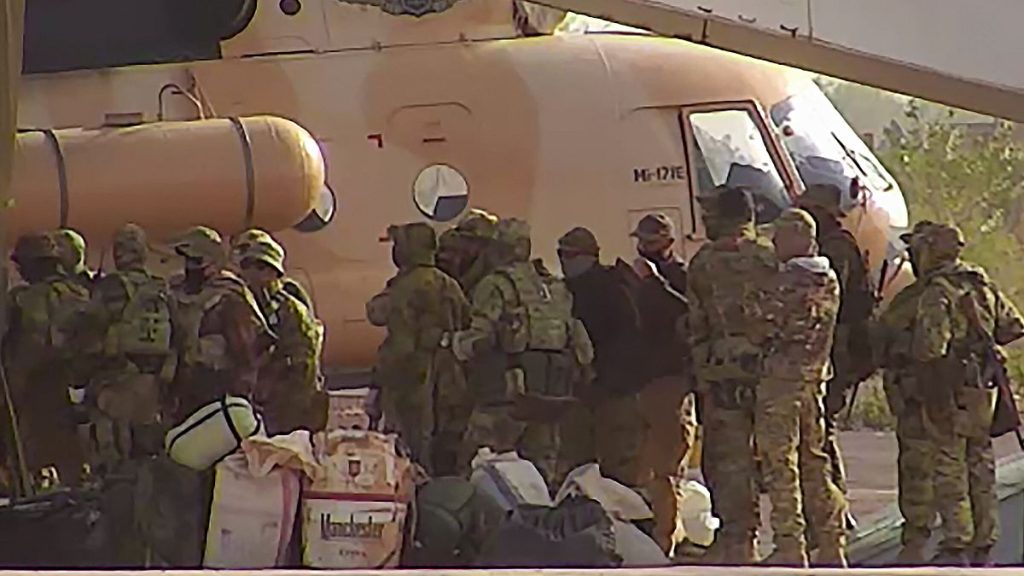The security situation in Mali has deteriorated significantly since the departure of the UN peacekeeping mission in 2023, marked by a surge in violence against civilians. Human Rights Watch (HRW) attributes this escalation to abuses committed by multiple actors, including Russian mercenaries affiliated with the “African Corps” (formerly the Wagner Group), the Malian army, and Islamist extremist groups like the Group for the Support of Islam and Muslims (JNIM) and the Islamic State in the Greater Sahara (ISGS). HRW’s report documents the deliberate killing of civilians by Russian mercenaries and the Malian army, along with the widespread destruction of homes. Simultaneously, Islamist groups have intensified their attacks, also killing civilians and displacing thousands, further deepening the humanitarian crisis. The compounding effect of these atrocities has created an environment of fear and insecurity for ordinary Malians.
HRW’s investigations have uncovered numerous cases of grave human rights violations, including extrajudicial killings, forced disappearances, and the burning of villages. One particularly harrowing incident highlighted in the report is the attack on the village of Barikoro, where Russian mercenaries and the Malian army allegedly killed two men and a boy. Testimonies from witnesses and relatives paint a grim picture of the brutality inflicted on civilians caught in the crossfire. The report also reveals the precarious situation faced by communities living under the control of Islamist groups, forced to navigate a complex landscape where cooperation with the militants is often necessary for survival, but also puts them at risk of being targeted by government forces.
The departure of the UN peacekeeping mission has created a vacuum in oversight and accountability, making it increasingly challenging to document the full extent of the abuses. HRW expresses deep concern that the actual number of victims is likely much higher than reported. The Malian authorities’ failure to hold perpetrators accountable has fostered a culture of impunity, emboldening both state and non-state actors to commit further atrocities. This lack of accountability perpetuates the cycle of violence and undermines efforts to restore peace and stability in the country. The report emphasizes the urgent need for independent investigations into these abuses and for those responsible to be brought to justice.
Independent data collected by organizations like the Armed Conflict Location & Event Data Project (ACLED) corroborates HRW’s findings, showing a marked increase in civilian casualties attributed to both government forces and Islamist groups. ACLED’s data reveals a disturbing trend of escalating violence, with a significant rise in the number of civilians killed in the first ten months of 2024 compared to the same period in 2023. This increase in violence underlines the urgent need for international intervention to address the deteriorating security situation and protect civilians.
The ongoing conflict in Mali, which has spanned over a decade, stems from the government’s struggle to quell the insurgency led by Islamist groups like JNIM and ISGS. Thousands of civilians have perished in the conflict, and hundreds of thousands have been displaced, creating a severe humanitarian crisis. The Malian government’s decision to partner with Russian mercenaries following the 2021 coup, and the subsequent withdrawal of French troops in 2022, has further complicated the situation. The reliance on Russian mercenaries has raised concerns about human rights abuses and the potential for further escalation of the conflict.
The international community must take decisive action to address the escalating violence against civilians in Mali. This includes holding all parties responsible for human rights abuses accountable, providing humanitarian assistance to those affected by the conflict, and supporting initiatives aimed at promoting dialogue and reconciliation. The departure of the UN peacekeeping mission has created a gap in international oversight, highlighting the need for renewed international engagement to protect civilians and promote peace and stability in Mali. The ongoing crisis demands a concerted effort from the international community to prevent further suffering and address the root causes of the conflict.














